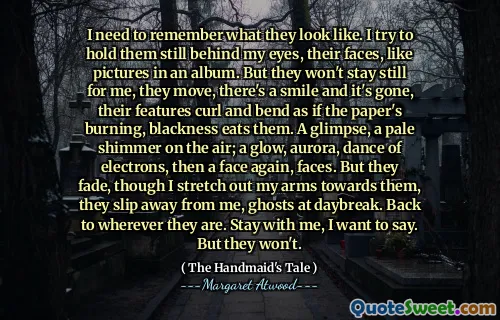I remember a television program I once saw; a rerun, made years before. I must have been seven or eight, too young to understand it. It was the sort of thing my mother liked to watch: historical, educational. She tried to explain it to me afterwards, to tell me that the things in it had really happened, but to me it was only a story. I thought someone had made it up. I suppose all children think that, about any history before their own. If it's only a story, it becomes less frightening.
The narrator reflects on a childhood memory of watching a historical television program, which their mother enjoyed. At a young age, the narrator struggled to grasp the significance of the events depicted and dismissed them as mere fiction. The mother's attempts to clarify that these events were real didn’t resonate with the child, who perceived them as stories. This perception is common among children, as they often view history prior to their own life experiences as made-up tales.
This perspective allows children to distance themselves from the frightening realities of history. By thinking of it as just a story, they can feel safer and less intimidated by the darker aspects of the past. The narrator's experience illustrates a universal theme of childhood, where the lines between reality and fiction blur, serving as a protective mechanism against the complexities of the world.






